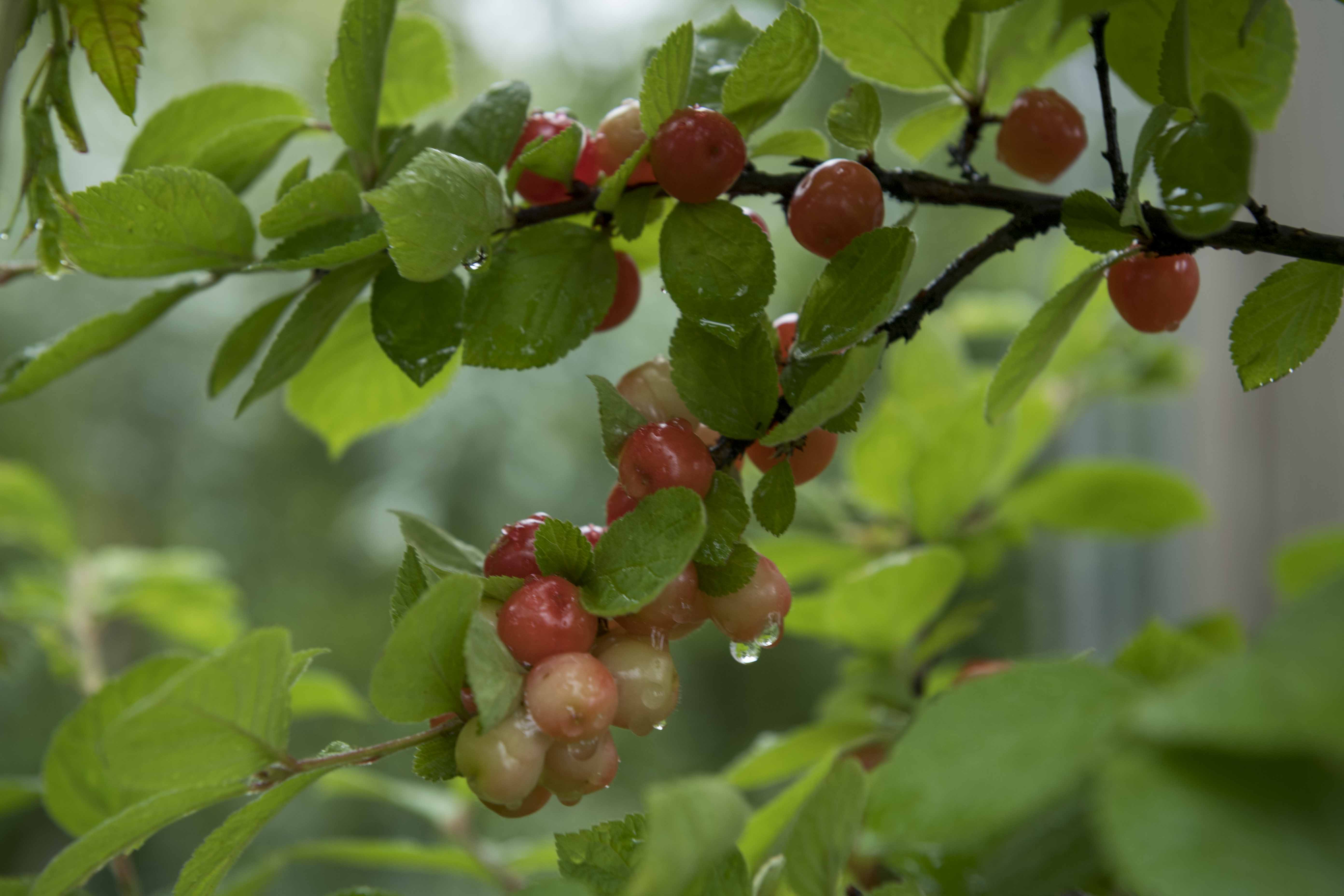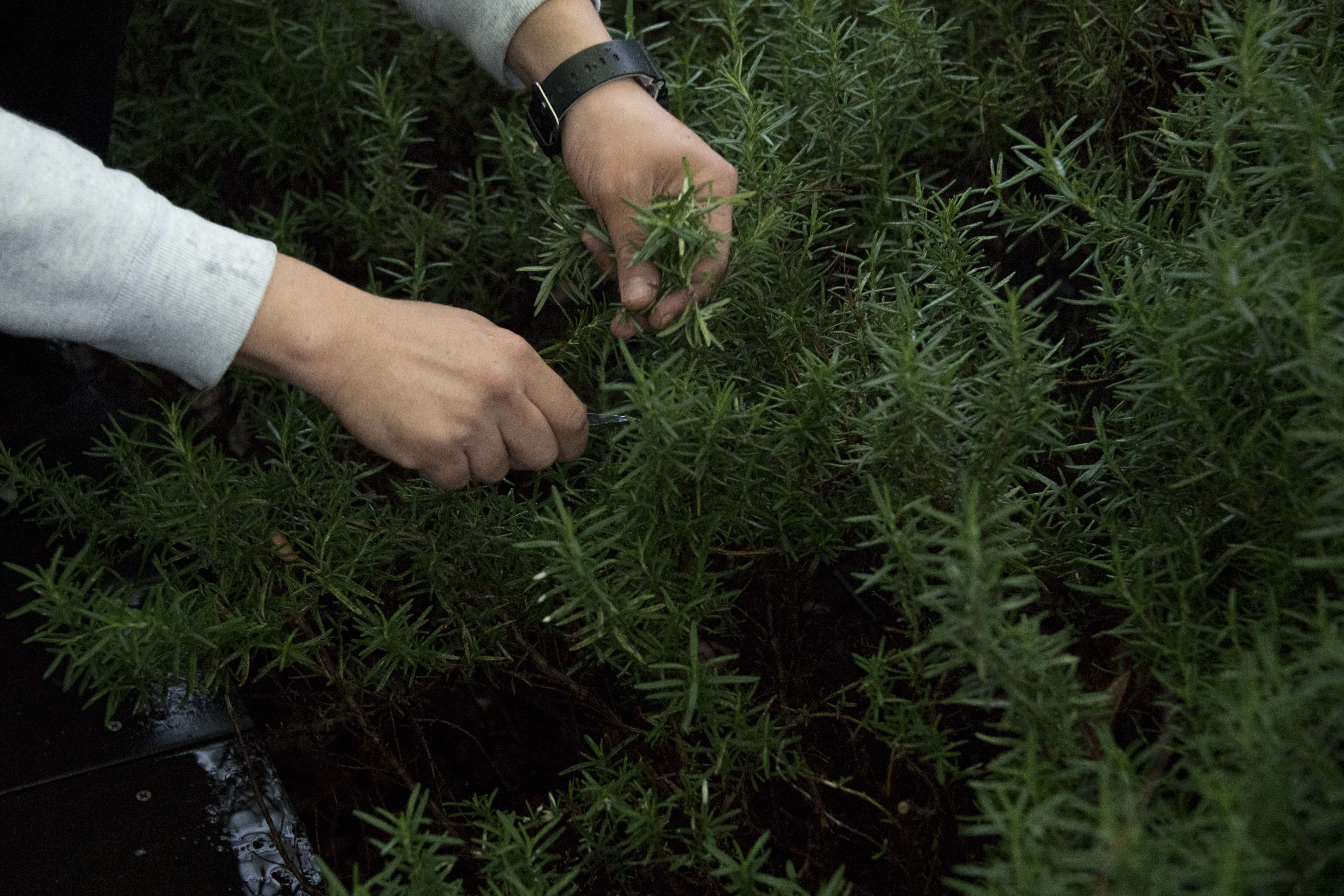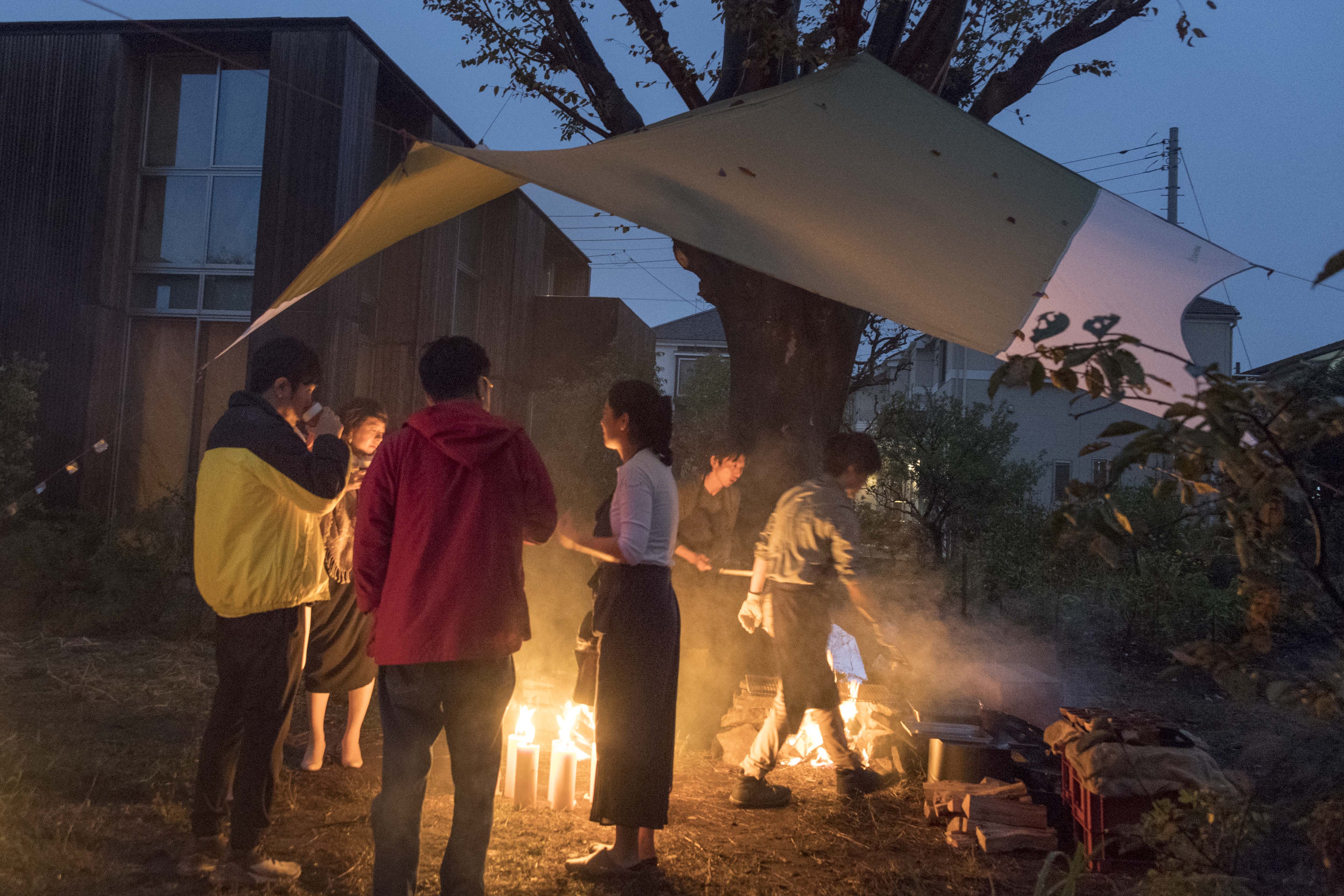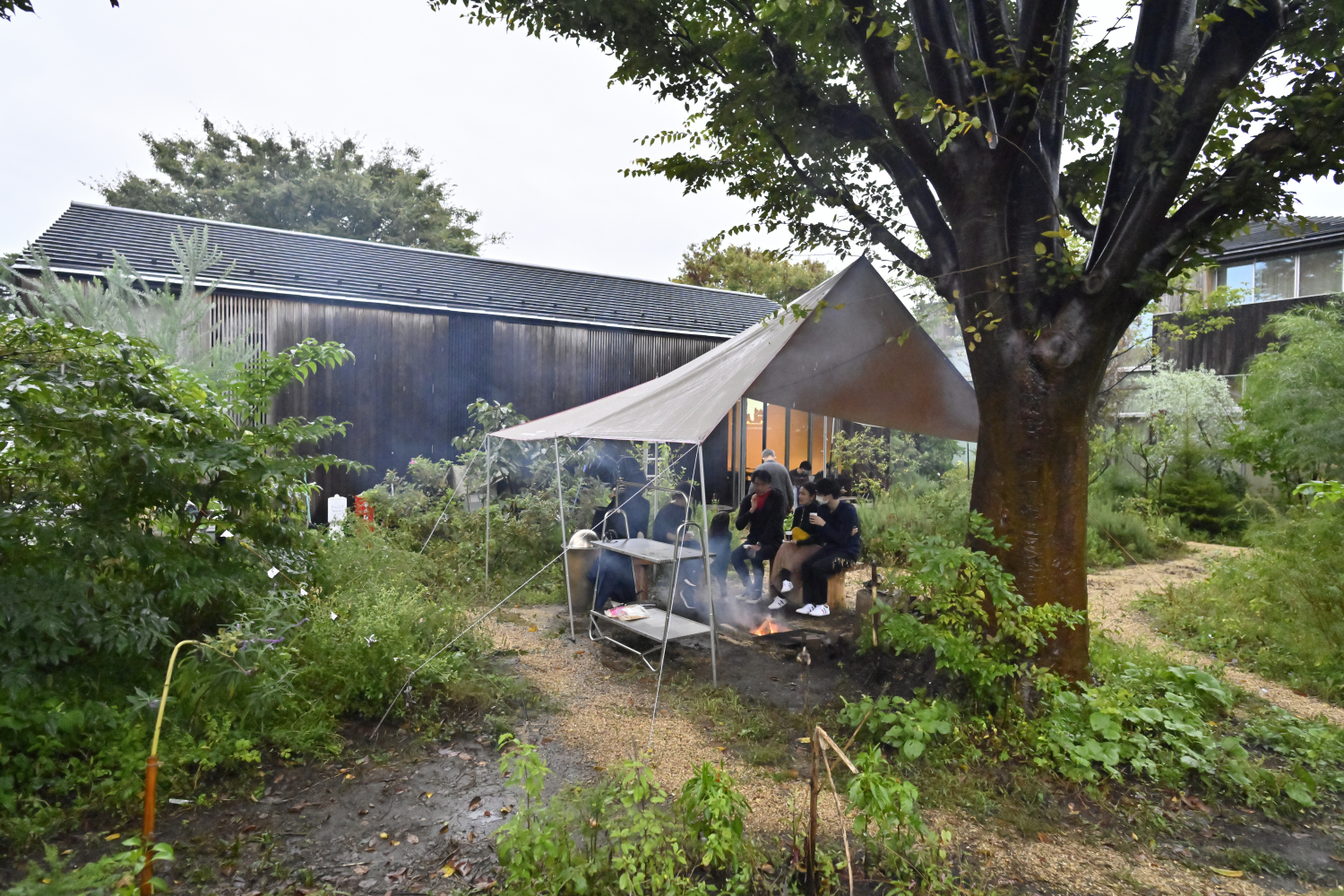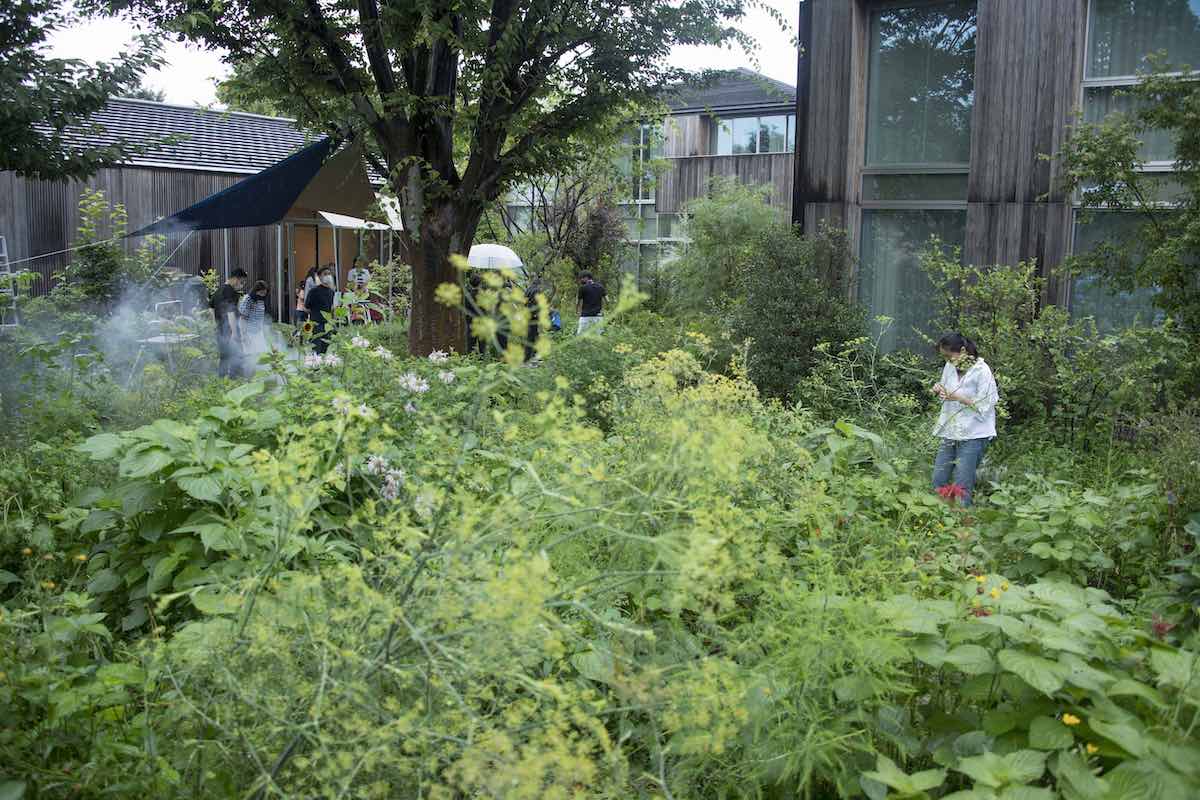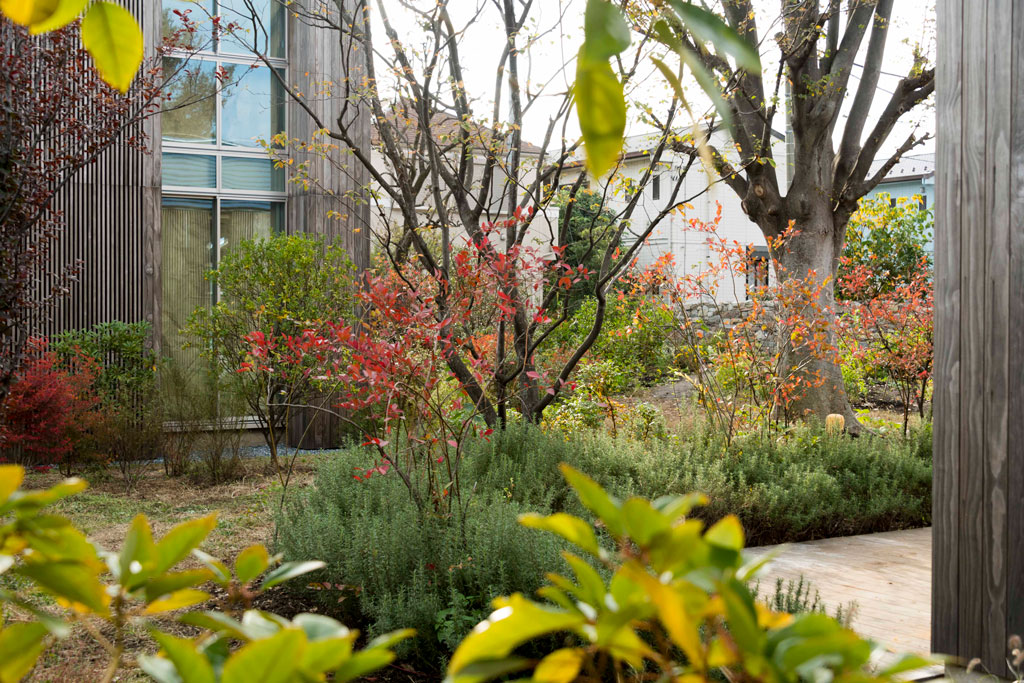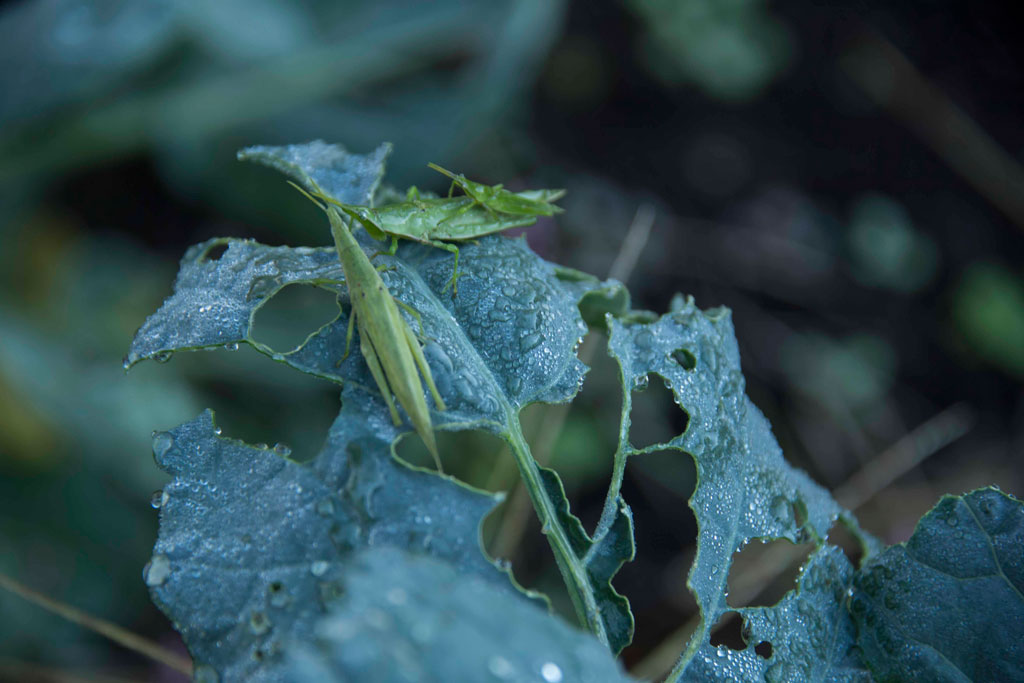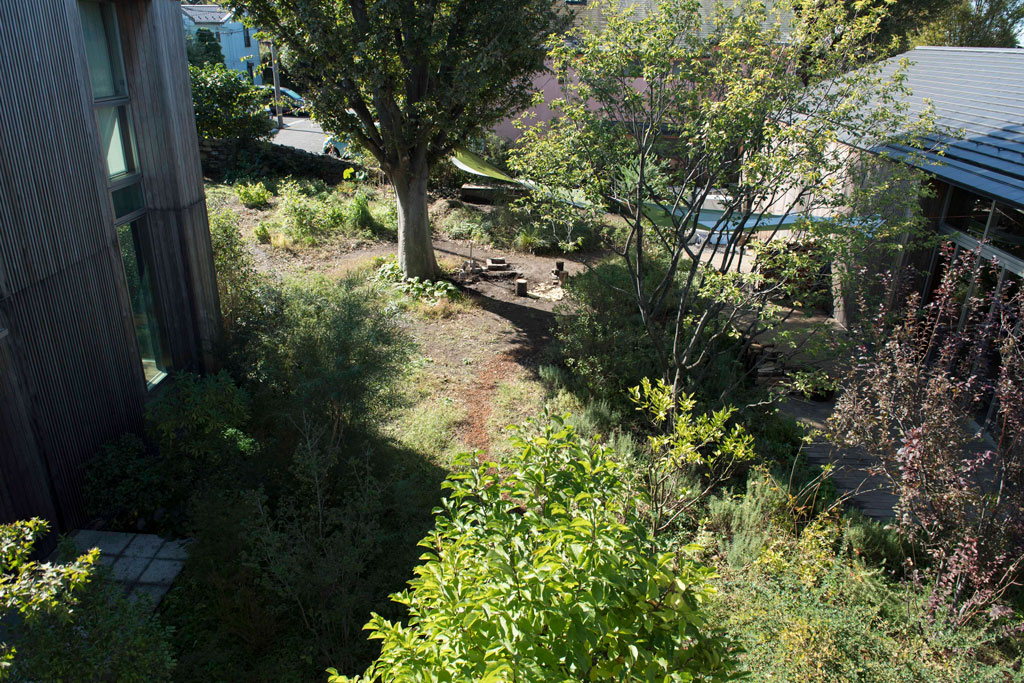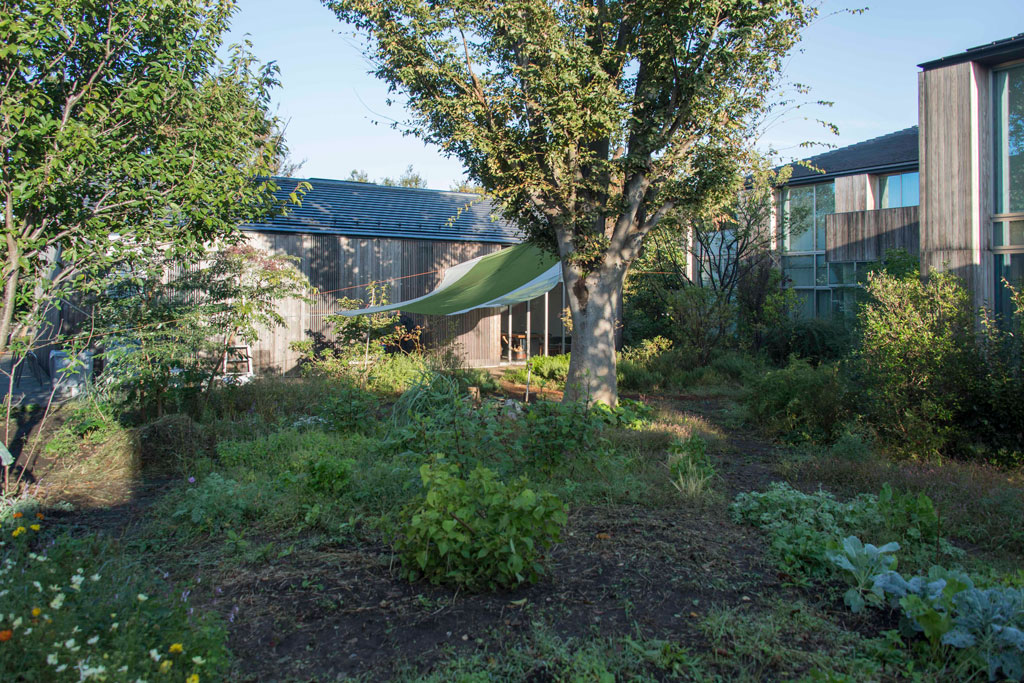
Nestled within walking distance of Jindai Botanical Gardens in Chofu City, Jindaiji Garden offers a way of life interwoven with nature. It’s a place where daily living and the natural world are not separated, but part of one harmonious rhythm.
Set on a spacious site of approximately 1,330 square meters, the garden features two thoughtfully spaced residential buildings and a restaurant that opens onto the street. The open spaces in between are filled with fruit trees, soft earth, and wild grasses that grow freely. Behind the restaurant lies a field and a majestic zelkova tree – the symbolic heart of the garden.
In this gently flowing garden breeze, yuzu fruits are harvested and made into jam. Birds frequently visit the juneberry tree beside the restaurant’s terrace to enjoy its ripe fruit. As night falls, people gather beneath the zelkova tree to share meals around a crackling fire. It’s a place that invites connection – Too special to keep to yourself, you’ll want to share it with others.
The two residential buildings have earned Platinum certification under LEED for Homes, the highest rating awarded by the U.S.-based Green Business Certification Inc. (GBCI).
Additionally, about 70% of the site – around 940 square meters of green space – has been awarded Platinum certification under SITES, the top rank in a landscape sustainability certification also managed by GBCI. This marks the second SITES certification in Japan, following Green Wise’s pioneering rooftop garden project.
GREEN WISE's
Sustainable SITES projects
Edible Landscape
The garden’s landscape is composed primarily of edible plants – fruit-bearing trees, aromatic herbs, and soft grasses. These plants not only support wildlife, attracting birds and insects, but are also valuable in our everyday lives. Feijoa and juneberries are used in desserts. Lemongrass and mint can be picked fresh for herbal tea. Even the kuromoji tree, traditionally used to make elegant picks for wagashi (Japanese sweets), can be brewed into a fragrant tea.
This is a landscape that nourishes both the ecosystem and the human spirit.
Urban Farming in Harmony with the Community
Behind the restaurant lies a small farm where herbs and vegetables are grown. The produce is used in the restaurant’s dishes and shared with the community through harvest festivals and seasonal events. It’s a place where neighbors can gather and connect through food and shared experiences.
Environmentally Conscious Landscape Maintenance
The site was originally home to many native species growing wild as “weeds.” To preserve plant diversity, the garden employs “selective weeding”, removing only invasive species like bamboo grass and goldenrod that can hinder the growth of other plants.
Maintenance is carried out using IPM (Integrated Pest Management), which prioritizes healthy growth environments over chemical control. Instead of relying on pesticides or herbicides, IPM involves physically removing pests, improving soil conditions, and supporting the plants’ natural resistance. It’s a holistic method that considers ecology, safety, cost, and long-term sustainability.
IPM is a management approach that combines the most effective control techniques from various methods while taking into account the environment, biology, safety and cost.
Rain Garden
On the north side of the property, a shallow hollow area serves as a rain garden, also known as a water infiltration garden. By leaving the soil unpaved, rainwater is able to slowly seep into the ground, feeding a natural water cycle.
Excess rain that cannot be stored in tanks flows into this garden, recharging groundwater and supporting the local environment. The rain garden contributes to flood prevention, helps mitigate land subsidence and groundwater salinisation, preserves water sources, and reduces underground heat buildup – all while enhancing biodiversity and beauty.
Access:
1-20-1 Jindaiji Kitamachi, Chofu City, Tokyo 182-0011, Japan
Access from the nearest stations:
・From Chofu Station North Exit: Take the Odakyu Bus [Route Taka 56] bound for Mitaka Station (South Exit)
・From Chofu Station North Exit: Take the Odakyu Bus [Route Kichi 06] (Chofu Station – Kichijoji Station)
・From Mitaka Station South Exit: Take the Odakyu Bus [Route Taka 56] bound for Chofu Station (North Exit)
Get off at “Jindaiji Kitamachi” bus stop, then walk 1 minute.
Restaurant Maruta is located on the premises. Please feel free to drop by.
For any inquiries regarding Jindaiji Garden, please contact pr-center@greenwise.co.jp.
